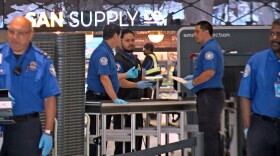This book really could have used some more cannibalism.
Strange to say it, I realize — especially about a novel that contains no fewer than three scenes of graphic dismemberment. Teeming as it is with hordes of rats, winged infants and sex scenes that rage and roil with all the romance of a Rob Zombie flick, Chase Novak's Brood isn't lacking for gore. It's got so much, in fact, that a few prim readers may even find the novel to be in poor taste.
I can't say I'm among them, though — partly because it's tough to talk about taste, or anything food-related, for several hours after setting this book down. But mostly because it's clear that in writing these scenes, Novak was having a blast. The moments in between can be stuffed with filler, but his prose sings with joy when he describes the snap of a bone, delights — and disturbs — when he dredges dark humor from the aftermath. Simply put, the people-eaters bring out the best in Chase Novak.
Now, Novak doesn't really exist. He's actually Scott Spencer, a writer who for decades wrote serious, literary novels — the kind that get nominated for National Book Awards (Endless Love, A Ship Made of Paper) and earn their author a Guggenheim Fellowship (he got one in 2004). Spencer first adopted his pen name for last year's Breed, a charmingly grotesque novel that marked a fairly dramatic departure from his earlier work; with Brood, its sequel, he picks the name Novak back up and dusts off the same characters, finding them again two years after the close of the first book.
At the heart of both books is a set of twins, Adam and Alice, who have suffered an unusually violent upbringing. The fruit of an experimental fertility treatment, they've survived their wealthy Manhattanite parents — in more ways than one — but they fear now they won't escape their parents' fates. Just on the cusp of puberty, Adam and Alice dread becoming the carnal, cannibalistic beasts that the treatment made of their parents. This battle for influence between beast and child, waged quietly within them, also plays out on a grander scale between packs of feral teens — born of the same experimental treatment — and the twins' aunt Cynthia, who's eager to reclaim them from their traumatic past.
The novel's not one for subtlety. The symbolism of the conflict — between animal and human, body and mind — is drawn in broad strokes, and so are its comments on class and pharmaceuticals. The aging elite of Manhattan don't care to help the mostly homeless, desperate teens roaming the city's parks; they prefer instead to slip into tubs perfumed with Ethiopian bath gel and sip the kids' blood, in little vials of a nasty street drug called Zoom.
As for biochemistry, well: "We are only at the beginning of the breath-taking dance between science and nature. What can be done with the atom will be done with the gene." It's tough not to hear ominous overtones in this mini-manifesto, given the ambitions and methods of the scientists involved in the novel.
While these themes help thread the book together, it's tough to shake the feeling that they exist just to kill time between, well, killings. For the most part, they don't go anywhere in particular; the frights and set pieces seem to grow not from all this exposition, but from happenstance instead. And Novak has an odd tendency to repeat himself — calling back bland observations about New York's nightlife, Cynthia's old antique shop or even jokes whose punch lines he has told us already, several pages earlier. In many ways, this slim novel could have been pared down even further, and been the better for it.
Or, even better yet, these down moments could simply have been swapped for more of the scenes that Novak handles so well. In the frenzy of the fight or in the tense minutes leading up to it, the book finds its groove, that B-movie bliss in which gore gets so gratuitous, it's occasionally funny — and always fun. Perhaps that's why somehow, despite all the broken bones and bared teeth and churning blood, Brood left me wanting just a little bit more. And yes, that goes for the cannibalism, too.
Colin Dwyer is a contributor to NPR.
Copyright 2023 NPR. To see more, visit https://www.npr.org. 9(MDAzMjM2NDYzMDEyMzc1Njk5NjAxNzY3OQ001))







